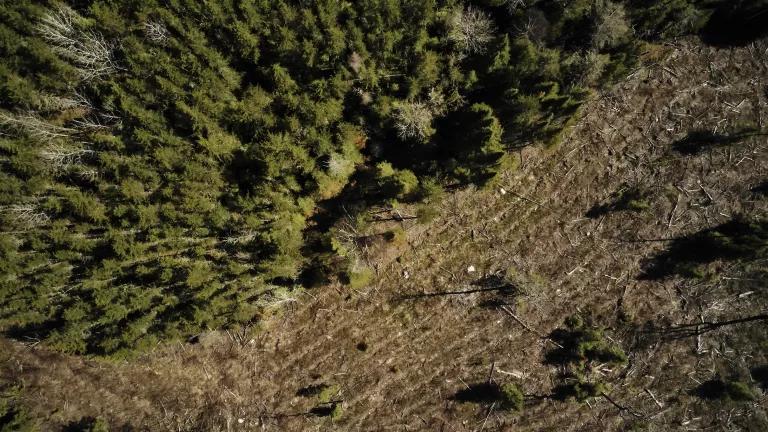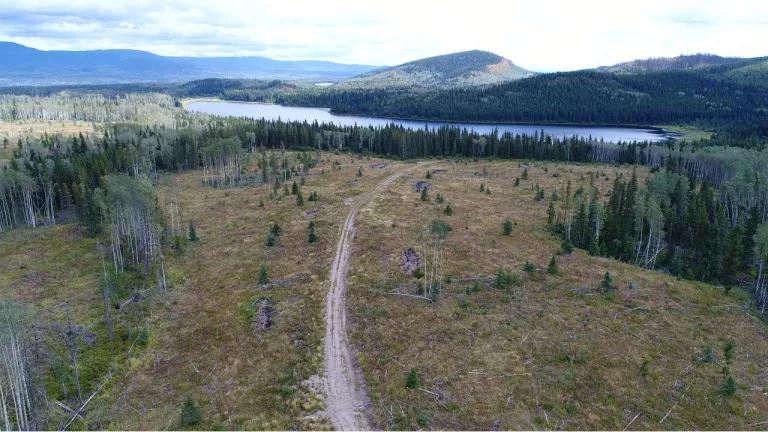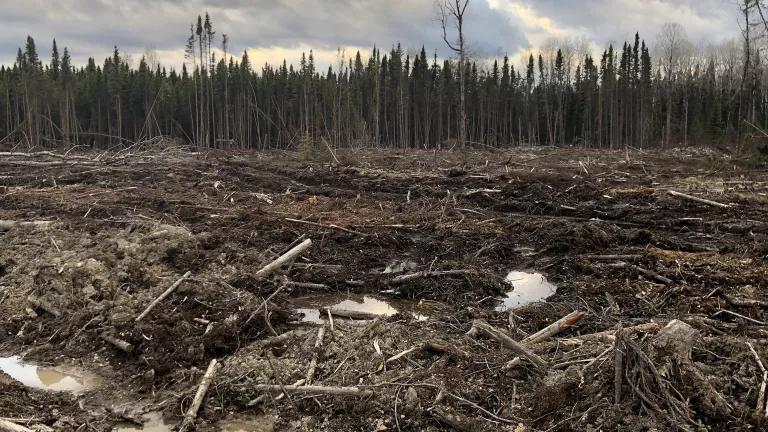A Disappointing Low Bar
Lowe’s latest forestry sourcing update lacks the ambition and specificity needed to protect forests and promote human rights.

At the end of December, following another landmark year of investor engagement on forest protection, the home improvement chain Lowe’s had an opportunity to take bold steps and embrace sustainable leadership in its wood supply chains with its 2022 Forestry Report. Unfortunately, the company instead opted for the path of least resistance–promising little change from the status quo and placing the company out of step with an increasingly forest-conscious marketplace.
Investor pressure led to Lowe’s forestry update
Lowe’s Forestry Report was published in response to investor pressure. In March 2022, Green Century Capital Management, a socially responsible investment firm, agreed to withdraw a resolution it had filed calling for Lowe’s to account for its impact on forests in exchange for the company publishing a report documenting its impact on primary forests and how it is implementing its Wood Sourcing Policy. In addition, Lowe’s agreed to “develop a strategy to mitigate climate, biodiversity, and human rights impacts associated with its wood sourcing.”
But its new report fails on many levels, and especially on this last point. What the company articulates as its plan will do little to protect climate-critical forests or uphold human rights. It instead uses weak language and relies on ineffective certification systems that likely will not meaningfully change outcomes on the ground.
Because of its agreement with Green Century, Lowe’s avoided the outcome that befell Home Depot in its May 2022 shareholder meeting, wherein nearly two-thirds of the company’s shareholders voted for a resolution urging the company to report on how it could eliminate deforestation and forest degradation in its wood supply chains. But with Lowe’s lackluster Forestry Report, the company now opens itself up to the same investor scrutiny its withdrawal agreement sought to avoid.
What’s in the report

Screenshot of steps that Lowe's committed to take in its new Forestry Report
While it’s commendable that the company published information on the geographic origin of its wood supply chain and the status of progress toward its stated goals (which stands in contrast to its competitor, Home Depot), Lowe’s misses the mark on what it committed to do in March 2022, and does not hold their suppliers in Canada accountable for preventing forest degradation or upholding human rights.
As Indigenous leaders have made clear in many different fora, the internationally recognized right to free, prior and informed consent (FPIC) should never be optional. Therefore it is imperative that companies purchasing from suppliers operating in Indigenous communities’ lands require their suppliers to secure FPIC. Lowe’s policy update will “encourage” suppliers to engage in FPIC, language that lacks clear expectations or enforceability.
Furthermore, Lowe’s new requirement that all wood products from Canada have third-party certification by 2027 does little beyond the status quo to protect climate-critical forests in Canada. As NRDC has noted in the past, there are vast differences between certification systems in Canada, with the Forest Stewardship Council’s standard having significantly more rigor for both Indigenous rights and boreal caribou population recovery than other certification schemes like the Sustainable Forestry Initiative. By failing to differentiate between these two certification schemes, Lowe’s both compromises its own standards and also validates industry greenwashing.
It bears noting that a policy that uses certification as a goal in and of itself has inherent flaws in it because it rewards process over outcomes. Lowe’s should have enshrined in its policy that it expects important outcomes like avoiding forest degradation in primary forests and requiring that its suppliers secure FPIC. Indeed, certification is only a tool to achieving more desirable outcomes on the ground.
Lowe’s specific Canadian goal as well as its overall update are particularly inadequate for protecting Canada’s remaining primary boreal forests. In its report, Lowe’s discloses that it gets 14 percent of its wood volume from Canada, second only to the United States. Because forest management policies in Canada are woefully insufficient to protect climate and biodiversity values of the forest and to uphold Indigenous Peoples’ rights, this significant volume of wood is coming at great risk to Canada’s forests and to Lowe’s itself, in the form of heightened investor scrutiny, greater reputational risk, and even regulatory and operational risk as different governments move forward with more stringent expectations for companies sourcing from forests.
An unfortunate reality is that while Lowe’s bears sole responsibility for what it writes in its report, both Canadian government officials and the logging industry in Canada create an additional, unnecessary hurdle to responsible sourcing by obfuscating logging’s true impacts and dragging their feet to deliver real protections for the forest. When the industry and government claim that logging operations in Canada are sustainable without actually establishing and enforcing responsible practices, it makes it all the more difficult for companies to adopt more stringent sourcing policies. And while no one actor is taking responsibility for improving outcomes on the ground, communities and our global climate and biodiversity continue suffer the consequences.
The circumstances demand action
Ultimately, the scientific community and large asset managers alike are increasingly vocal about the need for corporations to eliminate deforestation and forest degradation in supply chains and to require FPIC. This means Lowe’s missed a major opportunity to lead, and will continue to face scrutiny and endure financial risk for its lack of clarity and ambition on these topics. Both the company and its suppliers would do well to get ahead of these risks and set meaningful, measurable, public goals now.




